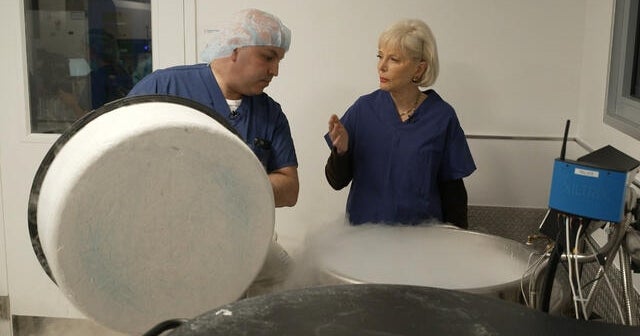Egg Freezing: Options, Costs, & Concerns
Freezing your eggs—also known as oocyte cryopreservation—is becoming an increasingly popular option for women who want to delay motherhood. Whether it's due to career aspirations, finding the right partner, or simply wanting more time to decide, egg freezing offers a potential path to future fertility. However, it's crucial to understand the different options, associated costs, and potential concerns before making such a significant decision.
Understanding the Process of Egg Freezing
The egg freezing process typically involves several steps:
- Ovarian Stimulation: Medications are administered to stimulate the ovaries to produce multiple mature eggs. This is done over a period of approximately two weeks, with regular monitoring via ultrasound and blood tests.
- Egg Retrieval: A minor surgical procedure is performed under anesthesia to retrieve the mature eggs from the ovaries.
- Vitrification: This is the freezing process itself. Eggs are rapidly frozen using a cryoprotectant to prevent ice crystal formation, which can damage the eggs.
- Storage: Frozen eggs are stored in a cryogenic tank using liquid nitrogen, where they can be preserved for years.
- Thawing and Fertilization (Future): When a woman is ready to attempt pregnancy, the eggs are thawed, fertilized with sperm (either from a partner or donor), and then implanted in the uterus via IVF.
Different Types of Egg Freezing
While the basic process remains consistent, there are variations in techniques:
- Slow-Freeze: An older method, though still used in some clinics. It's considered less effective than vitrification.
- Vitrification: The preferred method due to its superior success rates in preserving egg quality. It involves rapid freezing, minimizing ice crystal damage.
Cost of Egg Freezing
The cost of egg freezing can vary significantly depending on several factors:
- Clinic Location: Costs can differ dramatically based on geographical location.
- Number of Cycles: Multiple cycles may be needed to achieve a sufficient number of viable eggs.
- Medication Costs: The cost of fertility medications can be substantial.
- Storage Fees: Annual storage fees are incurred for maintaining the frozen eggs.
Expect to budget anywhere from $10,000 to $20,000 or more for a single cycle, including medication, retrieval, freezing, and storage for a year. It's essential to get detailed cost breakdowns from multiple fertility clinics before proceeding.
Potential Concerns and Risks
While egg freezing offers hope for future fertility, it's crucial to be aware of potential concerns:
- Success Rates: While success rates are improving, they are not guaranteed. The age at the time of freezing significantly impacts the chances of a successful pregnancy.
- Medication Side Effects: Ovarian hyperstimulation syndrome (OHSS) is a potential, albeit rare, side effect of the fertility medications. Symptoms can range from mild discomfort to severe complications.
- Emotional and Psychological Impact: The process can be emotionally and psychologically demanding, both financially and emotionally.
- Ethical Considerations: There are ethical considerations surrounding egg freezing, particularly concerning long-term storage and potential disposal of unused eggs.
Choosing a Fertility Clinic
Selecting the right fertility clinic is critical. Research clinics carefully, considering:
- Success Rates: Look for clinics with high success rates and transparent data reporting.
- Doctor Expertise: Choose a clinic with experienced and board-certified fertility specialists.
- Patient Reviews: Read reviews and testimonials from other patients.
- Cost Transparency: Ensure the clinic provides a clear and detailed cost breakdown upfront.
Conclusion: Making an Informed Decision
Egg freezing offers women a pathway to potentially delay motherhood, but it's a significant decision requiring careful consideration. Understanding the options, costs, and potential risks, and choosing a reputable fertility clinic are crucial steps in making an informed choice. Consult with your doctor or a fertility specialist to discuss whether egg freezing is the right option for you. Remember, this is a personal journey, and having open communication with your healthcare provider is paramount.

